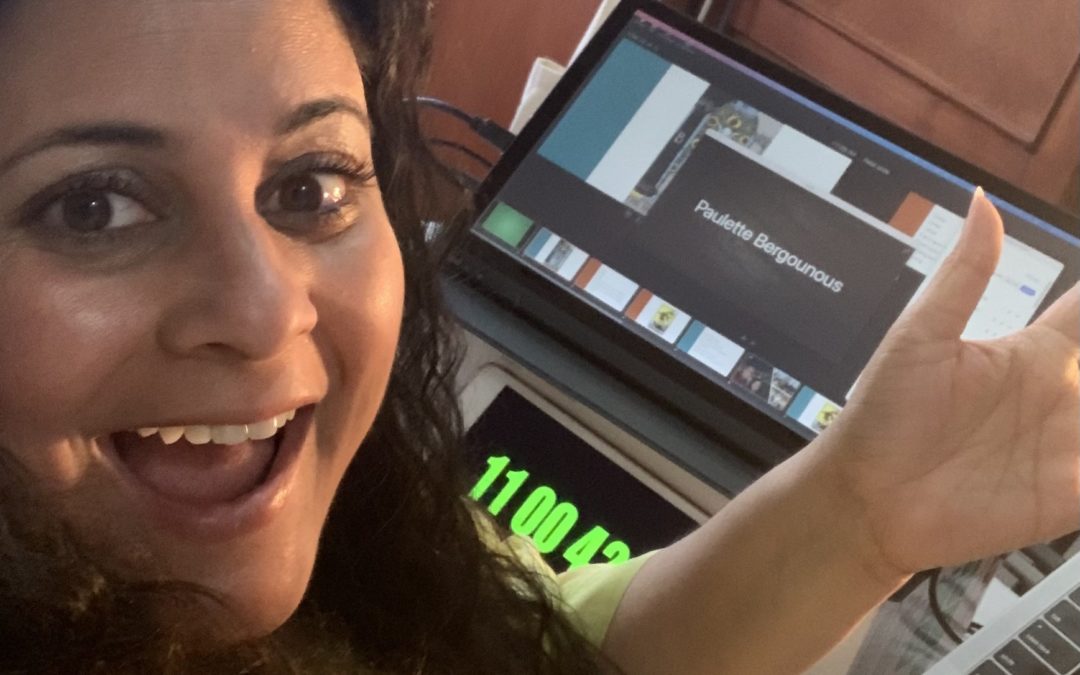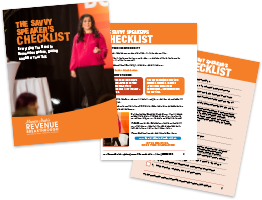Secret Weapons of Productivity: Clock-Watching
Are you familiar with the concept of clock-watching? I have a friend who started a new company a few years ago, and at the very beginning of his business, we would go for walks together at the end of the day. One day, we’d spent the day working together, and he was feeling super low by the time we got to the park.
He said to me, “Monica, I just can’t seem to get things done.” And one of the first things I had noticed about him was that he wasn’t clock-watching.
He would pick up the phone and talk to clients, friends, or colleagues, and have no idea how long his conversations were going to last. Conversations that should have lasted 30 minutes ended up taking 90 or even 120 minutes.
He wasn’t allotting enough time during the day to get his own work done, so by the end of every single day, he was exhausted, overwhelmed, and feeling like he was behind.
One of my favorite skills of successful entrepreneurs – something that I teach all of my high-level private clients – is called clock-watching.
Clock-watching is all about understanding and estimating how long it takes you to complete each task on your list. This includes deciding whether it would be more efficient for you to delegate or get help with a given task rather than just doing it yourself.
One of the fundamental issues that I see in most beginner entrepreneurs is the absence of any sense of time.
Many of you came into business from jobs that didn’t require or encourage you to look at the clock. Unless you worked a profession that billed by the minute or hour, you probably worked a full day and didn’t want or need to look at the clock, because you wanted the day to pass as quickly as possible.
It didn’t really matter whether you spent three hours or 10 hours writing that report, because, ultimately, you still got a paycheck.
But what’s so scary about entrepreneurship is that you can work 60-hour weeks and still be broke. If you’re spending time doing activities that do not serve you, it doesn’t matter how hard you work – you still won’t have enough money to stay in business for very long.
And that’s why clock-watching is one of the most important skills that I teach my entrepreneurs. It may seem almost too simple to need an explanation, but I’m going to break it down for you because it is so incredibly important.
Step number one: make sure you have a clock. Again, it seems simple, but a lot of the entrepreneurs I speak to don’t follow this rule.
Whether you work at a desk or on a couch – or if you switch rooms – you should always have a large digital clock that you can easily see while you’re working – not just your phone or the clock in the corner of your computer screen.
Step number two: before you do any task – and I mean any task – check what time it is, and estimate how long you’ll spend working on this task.
This applies whether you’re getting on the phone for a sales conversation, leading a team meeting, shooting a video, or writing an outline for your next presentation. For example, if you start writing an outline at 1:30 p.m. and estimate that it’ll take you one hour, you should be done by 2:30 p.m.
Step number three: write your estimation at the top of the paper you’re working on or on a separate sticky note. Following the above example, you would write down “2:30” and “presentation outline.”
Step number four: block out distractions and dive into your task. If it’s helpful for you to get a timer that ticks down each second for the hour you’re working on your outline, do that.
Maybe it helps you to get an app on your phone that prevents you from accessing Facebook or Instagram. If you have an iPhone, you can create a custom Do Not Disturb setting that will block out any notifications that you don’t need to see while you’re working.
Figure out what helps you stay inside the container of your task and your time, and stick to that.
Step number five: at the end of your allotted time, write down whether or not you’ve finished your task. If you’re new to this method, you probably won’t be done with your task, because you most likely underestimated how long it would take you – and that’s OK. You’ll get better.
Step number six: take a break and reevaluate. If you haven’t finished your task, decide how much longer you’re going to spend working on it, and write down what time you’ll need to stop.
Following the example from before, if you decided to spend one more hour on that outline after a 10-minute break, you’d write down 3:40 p.m.
Step number seven: at the end of a day of clock-watching, take a moment to reflect on how long things actually took you to complete. If you ended up spending three hours writing the presentation outline instead of one, ask yourself – is that the amount of time that it takes me to write an outline, or was I just confused, overwhelmed, distracted, or disorganized?
Jot down anything that you want to shift the next time you do a task like this, especially if there are pieces of your process that you might need help expediting or if there are pieces of your process that you want to delegate.
If you practice clock-watching every workday for the next six months, you’ll get better and better at estimating how long certain tasks take you.
When you can accurately estimate how much time you need to schedule out for each task, you’re going to have the important and utterly clear realization that you can’t finish everything on your to-do list.
That means you’ll need to be very intentional about delegating certain items, deferring some items to later, and deleting the items on your to-do list that don’t actually need to get done.
I understand that looking at the clock all the time and writing things out so specifically can be hard, boring, or even stressful. But remember that you’re not going to be doing this forever.
For about the first six months, you’ll learn a ton about yourself and how you use your time – and then you’re going to get really good at estimating task durations for yourself, which is key to long-term efficiency.
I’m willing to bet that certain tasks on your list are sucking time away without you even realizing it.
So my invitation for you this week is to start clock-watching by yourself. Get a digital clock, remember to overestimate how long things will take, and practice, practice, practice.
If you’re feeling completely overwhelmed by how much work you have to do, how much time it takes you, and how much it drains you, I get it – and I’d like to invite you to my upcoming free masterclass: Strategize Your Next 12 Months for 4-Hour Workdays & Multiple 6 Figures in Revenue.
We’ll be holding this 90-minute masterclass once on October 8, and once on October 11. I’m sharing the truth on the strategies I’ve used for more money and more time freedom.
Once you learn the truth about how you use your time, it becomes so much easier to use that time effectively. And THAT, my friends, is going to make you tons of money.








